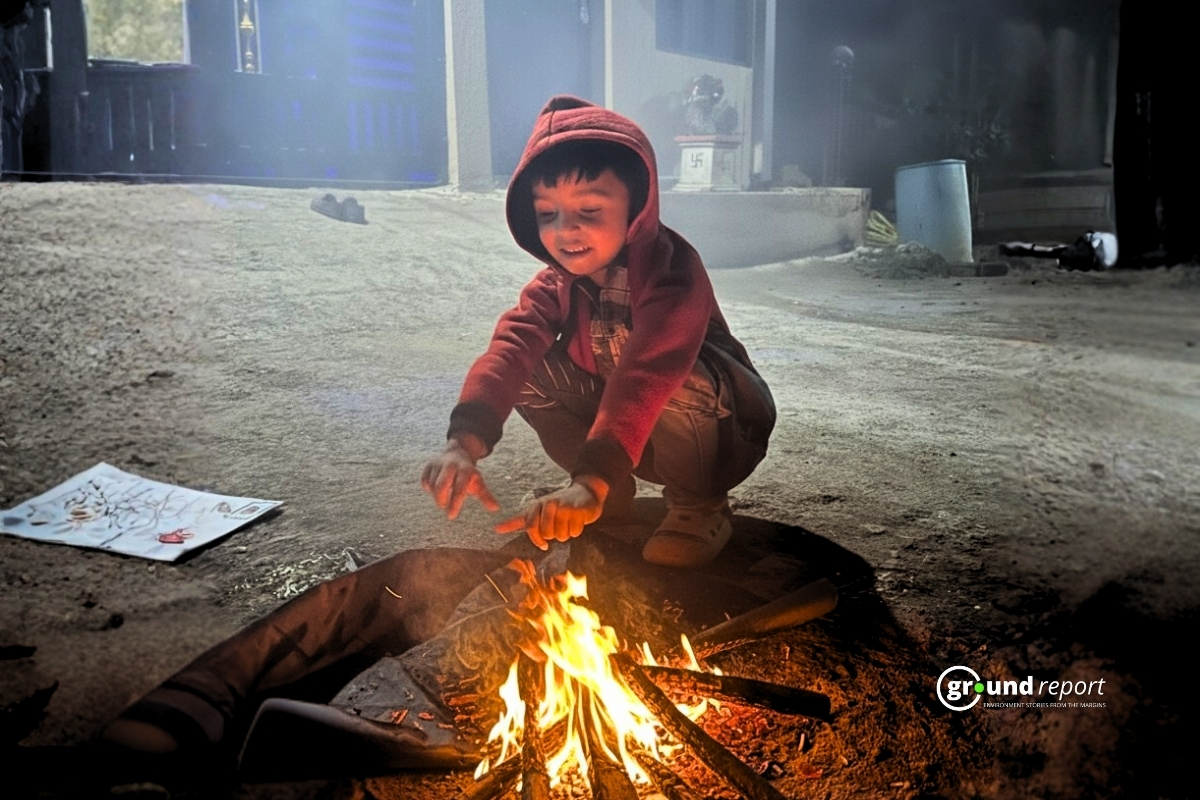हिंदी में पढ़ें | Swaaha, the country’s fastest-growing waste management and sustainability start-up, has been chosen to undertake the ambitious task of making the Amarnath Yatra (remote and sacred pilgrimage to the sacred cave of Amarnath) in the high Himalayas completely eco-friendly. The decision was made based on his remarkable performance by Swaaha in the previous year.
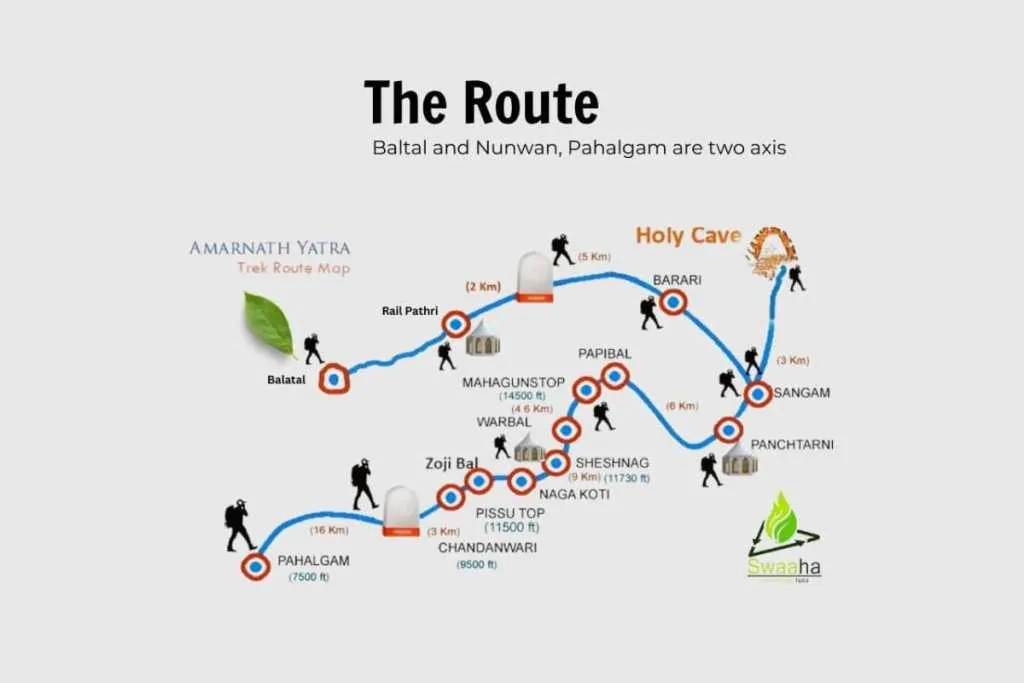
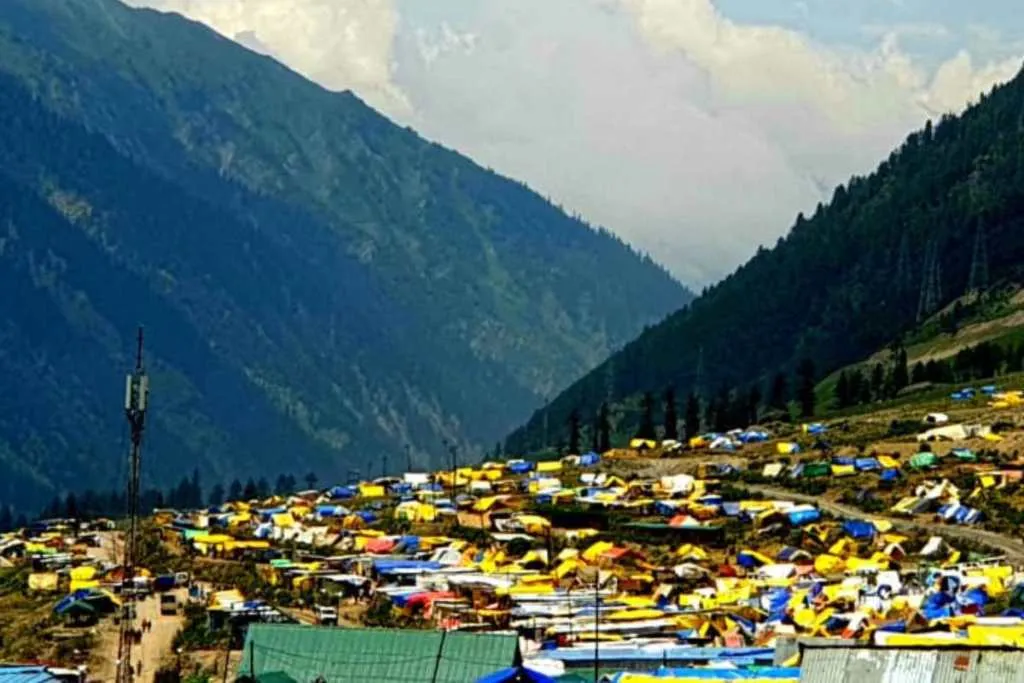
Eliminate the use of single-use plastic
This year, Swaaha will once again lead a team of more than 350 Safari Mitras and volunteers to prevent waste from polluting the Himalayas. They will set up 13 camps along the Baltal and Pahalgam routes of the Amarnath Yatra, extending as far as the cave.
Swaaha Director Sameer Sharma shared that his first priority will be to eliminate the use of single-use plastic at the base camp. To achieve this, they will raise awareness among pilgrims and carry out exhaustive controls, providing free cloth bags as an alternative to plastic.
Swaaha will actively convert food and kitchen waste from the langars into compost on-site, minimizing environmental impact and promoting sustainable waste management practices.
This time, in collaboration with Indore City Social Media Group, Swaaha has arranged a unique langar for Amarnath Yatra, which will be powered solely by solar energy and biogas. Along with traditional Indore flavors such as pohe, sabudana khichdi and tea, these delicacies will be distributed as free prasad to pilgrims.
The langar marks the first sustainable initiative of its kind. Shalini Sharma of the Indorewale Group stated that they will manage this langar during the Amarnath Yatra with the help of the residents of the city and the 2 lakh members of the group.
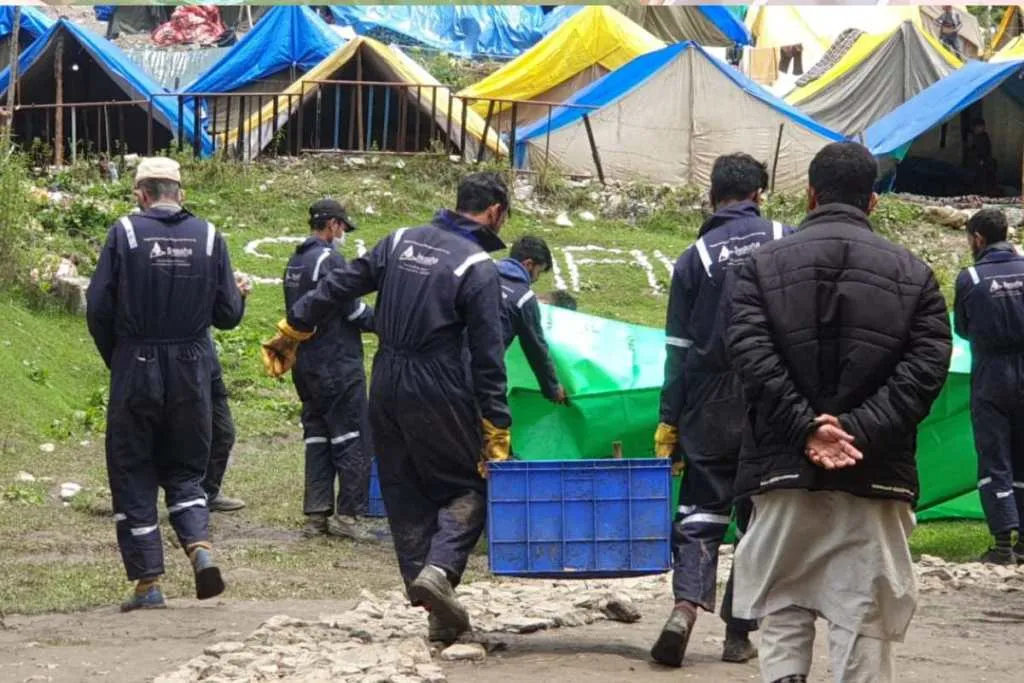
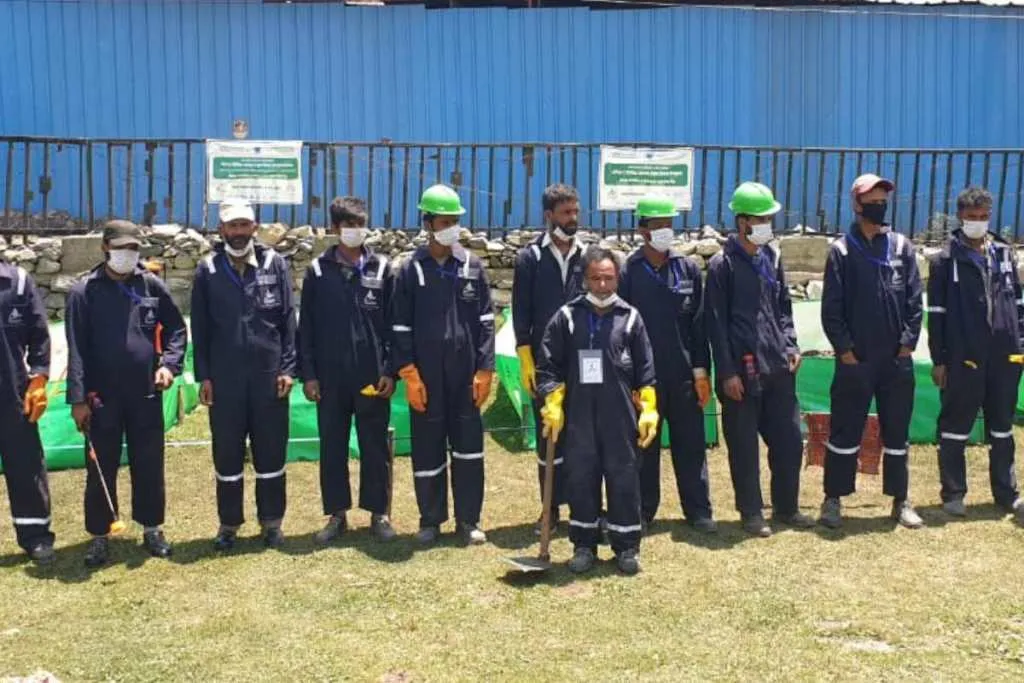
Swaaha will set up waste management facilities along the entire Yatra route, including the base camp, langar area, and cave. Indore startups are leading the way in promoting clean and zero-waste events across the country.
‘Responsible Pilgrimage’
To raise awareness about sustainable tourism and responsible pilgrimage, various activities such as awareness jingles, a Yatra hymn, pledge forms, selfie points, cloth bags, and a Swachhata mascot will be present at the base camps. The message will be further amplified through social media, reaching every corner of the country, with the aim of preventing pollution in the Kashmir valleys and Himalayan mountains.
Sameer Sharma added that a month-long special social media campaign will be launched on June 1. More than 200 Kashmiri youths will also volunteer for this noble cause.
He added: “Young people and individuals from all over the country are joining Swaaha as volunteers for this environmental protection event. They will receive training in environmental conservation and receive certificates upon completion of the programme.”
The 62-day yatra, scheduled from July 1 to August 31, aims to collect and process approximately 1,200 tons of waste, with a primary focus on promoting behavior change.
One of the significant challenges faced during the yatra is dealing with plastic waste, which tends to increase along the travel route. Swaaha’s team is determined to address this issue by encouraging pilgrims to refrain from using plastic from the base camps in Baltal and Pahalgam, the starting points of the pilgrimage.
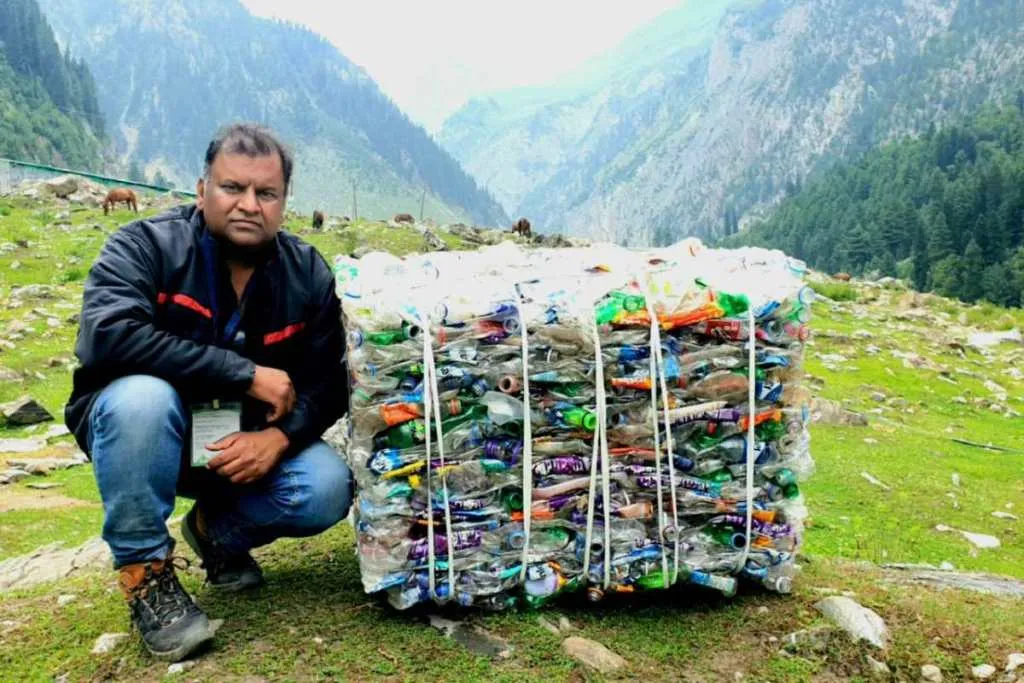
Swaaha’s Rohit Agarwal stressed that pilgrims often buy and dispose of around 20 to 30 lakhs of plastic bottles during their journey. He mentioned that by simply carrying reusable water bottles, pilgrims can prevent millions of plastic bottles from reaching the fragile Himalayan ecosystem. The biggest contributors to plastic waste are water, cold drinks, and juices.
Efforts will be made to raise awareness and educate pilgrims on the importance of minimizing the use of plastic and adopting sustainable alternatives throughout the yatra.
A machine that works without electricity
Swaaha’s Jwalant Shah shared an exciting innovation they have developed: a machine that works without electricity. This machine, driven by horses on non-motorized roads, will be mechanically operated by Swaaha’s team during their journey in the mountains. This cost-effective and portable solution is an incredible experiment that can serve as a model for other locations. Its maintenance is also simple and hassle-free.
Swaaha has assembled a team of engineers who travel the designated path with the help of horses. These engineers are responsible for the maintenance of the machines and equipment in the 13 camps, with rotations every 72 hours.
To ensure efficient waste management and resource allocation, Swaaha has developed software that enables real-time data analysis and reporting. Riders will be able to report any litter they detect via the web app, allowing the agency to address the issue immediately. Additionally, touchscreen kiosks will be available for travelers to provide feedback on their trips.
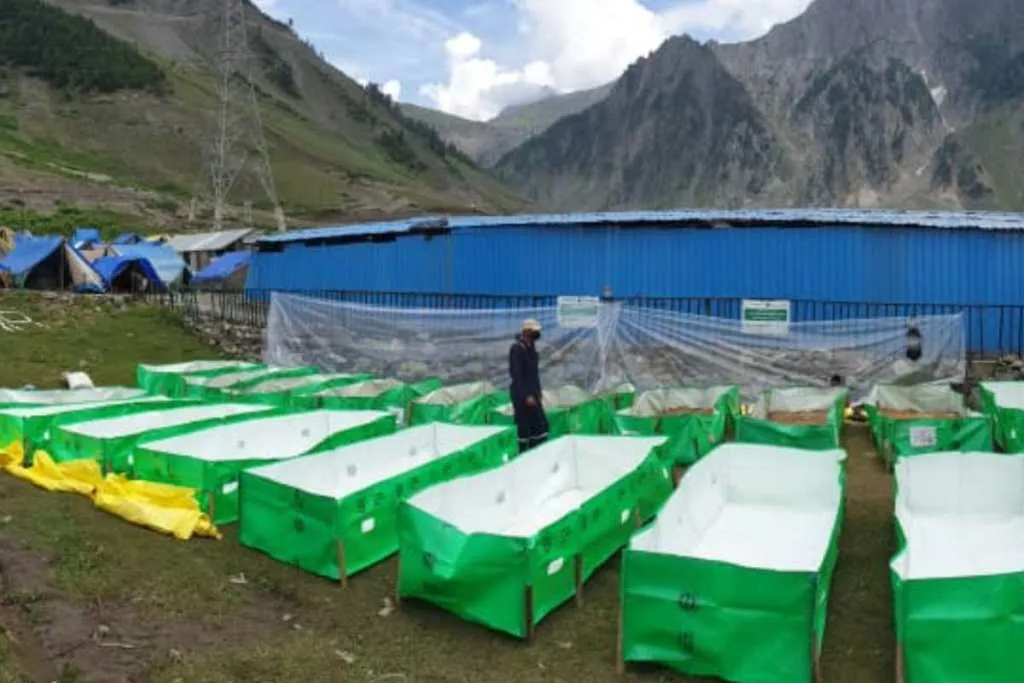
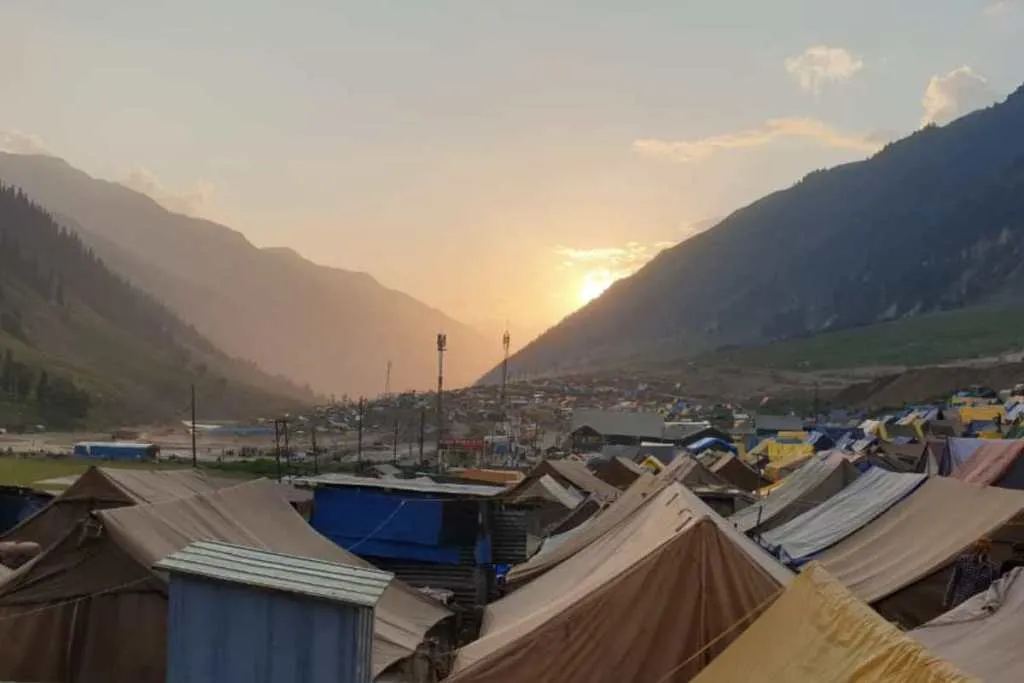
Weather is the biggest challenge
Unpredictable weather conditions, including rain, storms, landslides, cloudbursts, extreme cold, and snowfall, pose significant challenges for the team operating at the country’s highest pilgrimage site.
Sameer Sharma explained that the team arrives in the mountains a month in advance to acclimatize to the climate. Lack of oxygen and extreme cold at high altitudes can cause difficulties due to altitude sickness.
Swaaha expresses gratitude for the cooperation received from the Government of Jammu and Kashmir UT, the pilgrims, and the grace of God. They anticipate that, just like last year, they will set an example to the world through the collective efforts and support of all stakeholders.
Support us to keep independent environmental journalism alive in India.
Keep Reading
MP farmers battle stray animals, and sleepless nights to protect crops
Pesticides and agriculture threaten Sarus Cranes at Indore’s Yashwant Sagar wetland
Changing weather patterns impacts soybean crops in the Dewas region of MP
Follow Ground Report on X, Instagram and Facebook for environmental and underreported stories from the margins. Give us feedback on our email id greport2018@gmail.com.
Don’t forget to Subscribe to our weekly newsletter, Join our community on WhatsApp, Follow our Youtube Channel for video stories.







